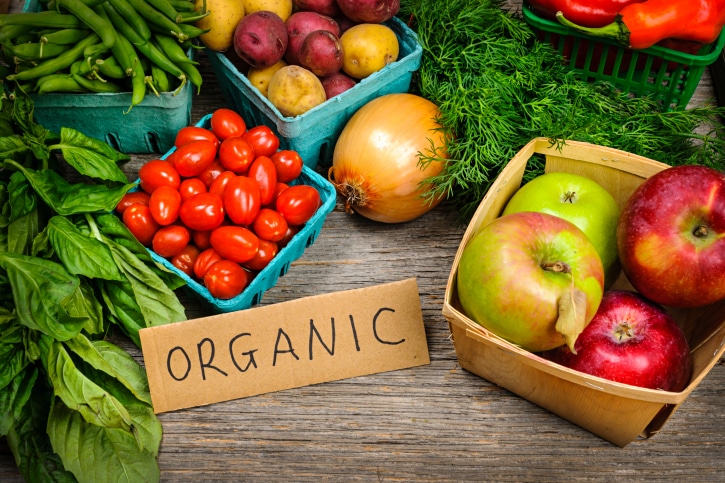
In the early 2000s, being “organic” became the IT thing. We saw organic everything from our clothing, the food we ate, to suddenly shopping at our local farmer’s market. The organic industry is growing at around 20% annually, exceeding $40 billion, and an estimated $4 billion is spent on personal-care products.
For many, living the organic lifestyle means getting a healthy, wholesome diet, becoming more environmentally conscious or it’s just the humane thing to do. For others, it may be a serious turn off to change their lifestyle or it may be something they came across and wanted to learn more about. Nonetheless, many people are switching and its benefits can be seen by both the sellers and the consumers.
What does it mean to be organic?
After World War II, “factory farms” became increasingly automated farms, where the use of synthetic fertilizers, pesticides and herbicides became widespread. Using these techniques allowed crops to be mass-produced. Ironically, they did not realize the dangers and effects using these chemicals would have on the environment and human health.
SIGN UP FOR OUR NEWSLETTER HERE!
The term “organic” refers to the way agricultural products are grown and processed. “Organically” grown food is food grown without the use of synthetic fertilizers, pesticides, bioengineered genes (GMOs), petroleum-based fertilizers and sewage sludge-based fertilizers. Organic crops must be grown in safe soil, have no modifications and must remain separate from conventional products. As far as meat, the animals are reared without any antibiotics or growth hormones.
What are the benefits of an organic diet?
To name a few:
- Organic food is free of genetically engineered (GE) ingredients. Organic farmers do not use GE seeds or irradiation methods. Instead, crop rotation and use of natural compost produce a richer soil in which to grow and harvest their produce.
- Organic food does not have any synthetic additives. Organic food does not consist of artificial food colors and flavors, preservatives, nitrates and sulphites, artificial sweeteners or monosodium glutamate (MSG). Organic food is preserved and naturally sweetened using substances such as a honey and grape juice.
- Organic foods have significantly higher levels of nutrients. Depending on the produce, organic food is shown to have higher amounts of salicylic acid and more vitamin C, iron, calcium, magnesium and phosphorous.
- Organic food contains lower levels of pesticides. Approximately 70% of pesticides that appear in conventional food are banned in the production of organic food.
- Organic livestock production does not use antibiotics or growth hormones. In conventional livestock production, antibiotics or growth hormones are injected into the cattle to make them larger, fatter and hence deliver more meat. Organically reared cattle are allowed to grow and develop at their own pace without any synthetics injected into their system.
No More Excuses! Eat Organic On The Cheap
Still on the fence about switching to an organic lifestyle? Tell us why. If you’re embracing the organic lifestyle, share what transitions you’ve made and how it has been for you.
Visit the BlackDoctor.org Food center for more articles.








